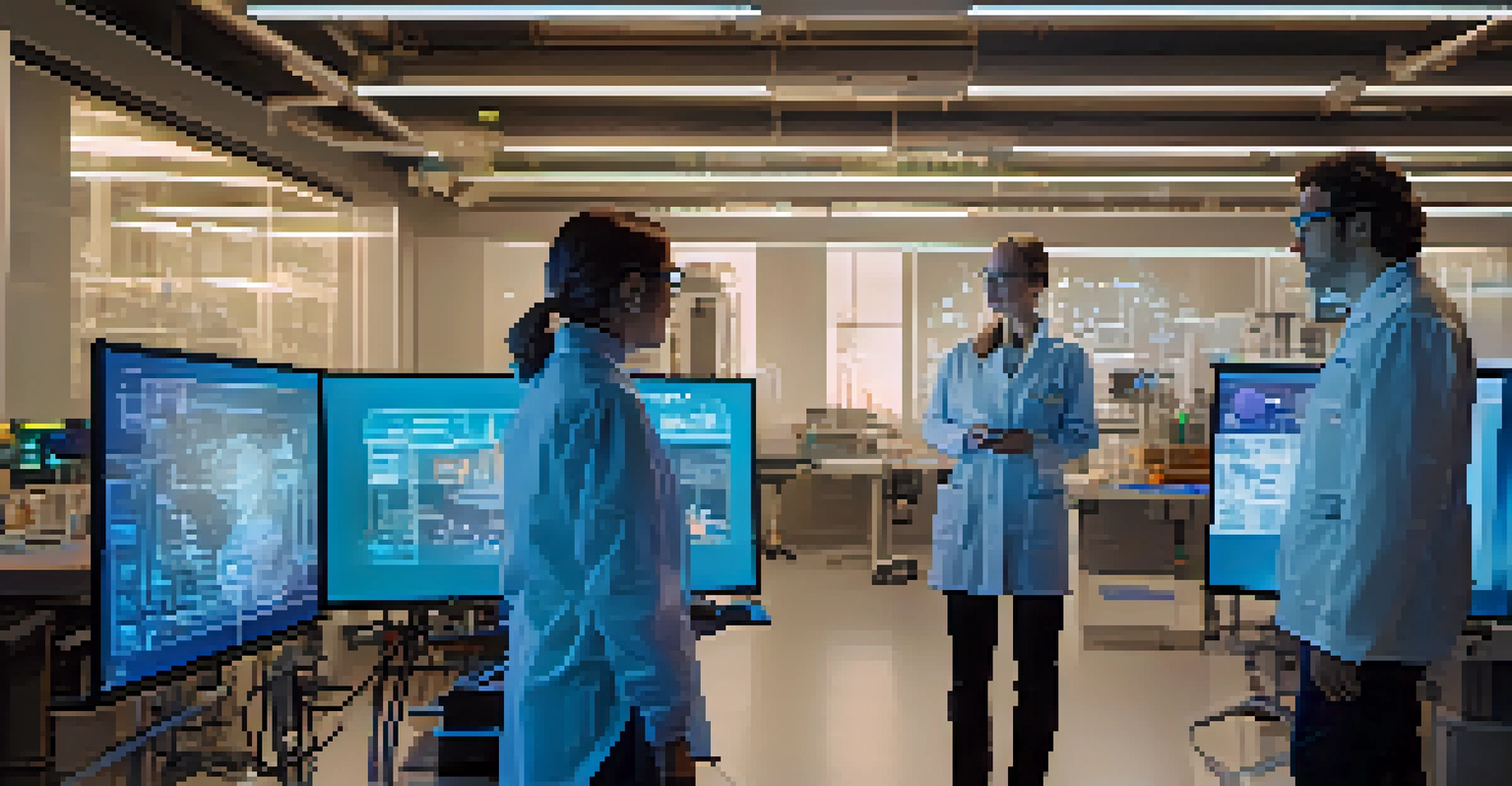Exploring the Impact of the University of Washington on Research

A Historical Overview of the University of Washington
Founded in 1861, the University of Washington (UW) has grown into one of the leading research institutions in the nation. Its location in Seattle, a hub for technology and innovation, has significantly influenced its research direction. Over the decades, UW has produced notable alumni and faculty who have made groundbreaking contributions across various fields.
Research is creating new knowledge.
The university's commitment to research is evident in its expansion of facilities and programs dedicated to innovation. From its early days, UW has fostered an environment where inquiry and exploration are not just encouraged but celebrated. This legacy continues today, with a robust infrastructure supporting a diverse range of research initiatives.
As we explore the impact of UW on research, it’s essential to appreciate how its history has shaped its current mission. The institution's growth parallels significant advancements in technology and science, making it a pivotal player in the global research landscape.
Key Research Areas at UW: A Diverse Landscape
The University of Washington excels in a multitude of research areas, ranging from health sciences to environmental studies. Its interdisciplinary approach allows researchers to collaborate across fields, enhancing the quality and impact of their work. For instance, the Institute for Health Metrics and Evaluation (IHME) is renowned for its data-driven health research that informs global health policies.

In addition to health sciences, UW is also a leader in technology and engineering, particularly in fields like artificial intelligence and robotics. The Paul G. Allen School of Computer Science & Engineering is at the forefront of pioneering advancements that shape our digital future. This blend of disciplines fosters innovation that addresses pressing societal challenges.
UW's Rich Research History
The University of Washington has evolved into a leading research institution, driven by its commitment to inquiry and innovation since its founding in 1861.
Moreover, UW’s commitment to sustainability and environmental research is crucial in today’s climate crisis. Projects focused on climate change, renewable energy, and sustainable agriculture showcase the university's dedication to not only understanding but also solving real-world problems.
The Role of Collaboration in UW Research Initiatives
Collaboration is a cornerstone of research at the University of Washington. The institution partners with local organizations, government agencies, and global institutions to enhance its research capabilities. This collaborative spirit not only enriches the research environment but also broadens the impact of findings on a larger scale.
The greatest innovations are born from collaboration.
For example, UW has numerous partnerships with tech giants like Microsoft and Amazon, which provide researchers access to cutting-edge technology and resources. This synergy leads to innovations that can quickly transition from the lab to real-world applications, benefiting society as a whole. The flow of ideas and resources is vital for driving progress.
Additionally, collaborative research fosters a sense of community among scholars, allowing for the exchange of diverse perspectives. This inclusivity encourages creativity and helps produce comprehensive solutions to complex issues that no single entity could tackle alone.
Student Involvement: A Catalyst for Innovation
At the University of Washington, students play a crucial role in driving research forward. Engaging undergraduates and graduates in research projects not only enhances their educational experience but also injects fresh ideas into existing initiatives. Programs like the Undergraduate Research Program encourage students to explore their interests and contribute meaningfully.
Moreover, student-led research initiatives often bring innovative solutions to the forefront. For instance, projects developed by students in the Environmental Studies program have led to actionable insights on sustainability practices in the local community. This involvement not only empowers students but also cultivates a new generation of researchers.
Collaboration Fuels Innovation
Partnerships with organizations like Microsoft and Amazon enhance UW's research capabilities, leading to real-world applications and impactful discoveries.
The university's emphasis on experiential learning ensures that students are not merely passive observers but active participants in the research process. This hands-on experience equips them with valuable skills and fosters a lifelong passion for inquiry and innovation.
Impact of UW Research on Local and Global Communities
The research conducted at the University of Washington has far-reaching implications that extend beyond academic circles. Locally, UW's studies inform public policy, healthcare practices, and community initiatives, creating a lasting impact on the Seattle area. For instance, research on public health has led to improved health outcomes and accessibility for residents.
Globally, UW's research contributes to addressing some of the world's most pressing challenges, from climate change to infectious diseases. The university’s collaboration with international organizations ensures that its findings reach those who need them most. This global outreach amplifies the significance of UW's work and demonstrates a commitment to societal betterment.
Furthermore, UW's focus on engaging with diverse communities enhances the relevance of its research. By incorporating various perspectives, the university ensures that its initiatives are inclusive and tailored to meet the needs of different populations, both locally and globally.
Innovative Technologies Emerging from UW Research
The University of Washington is home to groundbreaking technologies that have transformed various industries. Research in computer science and engineering has led to innovations in machine learning, virtual reality, and more. These advancements are not just theoretical; they are actively shaping the tools we use every day.
One notable example is the development of HoloLens, a mixed-reality headset that originated from UW research. This technology has applications in healthcare, education, and entertainment, showcasing how university research can lead to practical solutions with widespread benefits. Such innovations highlight the university's role as a leader in tech development.
Students Drive Research Progress
Engaging students in research initiatives at UW not only enriches their educational experience but also brings fresh perspectives that catalyze innovation.
Additionally, UW’s commitment to intellectual property and commercialization ensures that research findings can transition into marketable products. This focus bridges the gap between academia and industry, fostering a culture of innovation that resonates beyond campus borders.
Future Directions: The Next Frontier of Research at UW
As the University of Washington looks to the future, its research agenda continues to evolve. Emerging fields such as artificial intelligence, biotechnology, and climate science are expected to take center stage, driving new discoveries that can address complex global issues. The university is poised to be at the forefront of these developments.
Moreover, UW is actively investing in facilities and resources to enhance its research capabilities. Initiatives like the new Health Sciences Building reflect a commitment to providing state-of-the-art environments for researchers. This infrastructure will support collaboration and innovation, ensuring that UW remains a leader in research.

Ultimately, the university's vision for the future is rooted in its mission to make a positive impact on society. By embracing interdisciplinary research and fostering partnerships, UW aims to tackle the challenges of tomorrow while continuing to inspire the next generation of scholars.